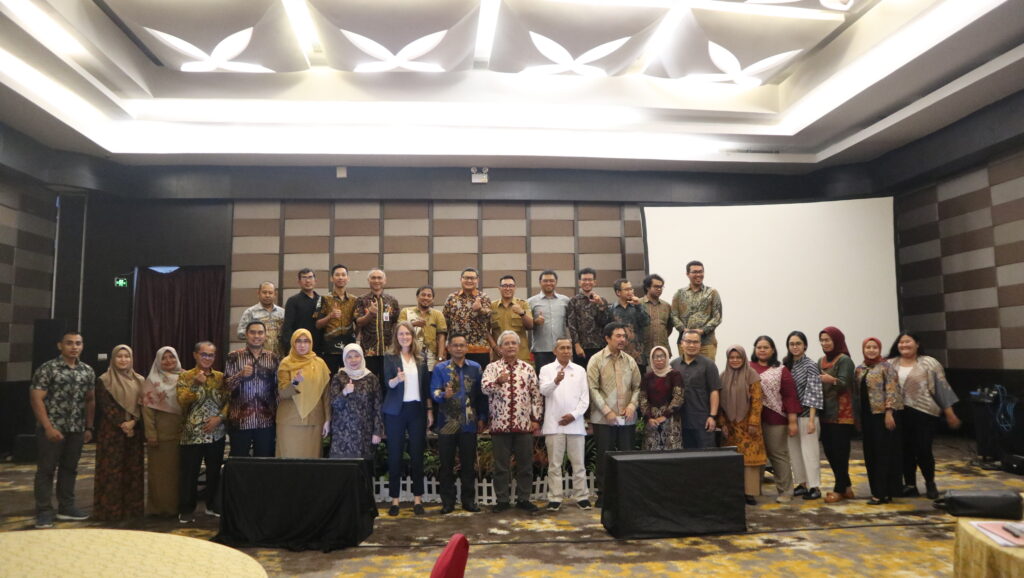Balikpapan, 1st of August 2023 – Project Clean Affordable and Secure Energy (CASE) for Southeast Asia with the National Energy Council (DEN) held a public discussion in Balikpapan to discuss the role of regional government of Kalimantan in preparing and implementing Regional General Energy Plan (RUED) in achieving just energy transition in coal mining regions.
Lisa Tinschert, Energy Programme Director of GIZ Indonesia and ASEAN, has highlighted Indonesia’s ambition to reach 23% energy mix in 2025 and Net Zero Emission (NZE) in 2060. To achieve this goal, the acceleration of energy transition becomes a key to unlock a sustainable energy system and a cleaner energy for Indonesia. Lisa emphasized that energy transition occurs everywhere across Indonesia, making the role of a bottom-up decision making from regional governments a critical aspect in energy transition. In Addition, Ade Cahyat as the project leader of GIZ’s IKI JET programme, stressed the importance of putting a just narrative in the national energy plan in the process of transitioning to a cleaner energy future.
Dr. Rachmat Mardiana, the Director of Electricity, Telecommunications and Informatics, Directorate of Electricity, Telecommunications and Informatics of the Ministry of Development Planning/Bappenas also mentioned the importance of future collaboration from regional governments with the national general energy plan (RUEN) to achieve NZE in 2060.
As a coal-producing region, the East Kalimantan public conversation on RUED aimed to explore local government viewpoints, voices, and readiness to accelerate energy transformation. Hence, Local governments become central in ensuring energy transition with a just principle as a part of RUED’s implementation.
Rusdian Nor, the Secretary of Bappedalitbang Paser has mentioned that social, cultural, and economic aspects of the region are often overlooked in the process of energy transition. This places an importance in social and economic transformation for the locals. Sustainable education also holds a significant direction in cultural shift for the locals to take part in achieving energy transition. Rusdian hoped that the policy making process should be undertaken with inclusivity in positioning them as the subject of energy transition rather than a mere object.
This public discussion has yet again reinstated the significance of energy transition at the regional level. With this discussion, CASE looks for regional positions for the energy transition including their demands and how the central government can incorporate these inputs by delegating authority to the regions, not only to the provincial government, but also to the district and village governments that are directly affected by the energy transition.




